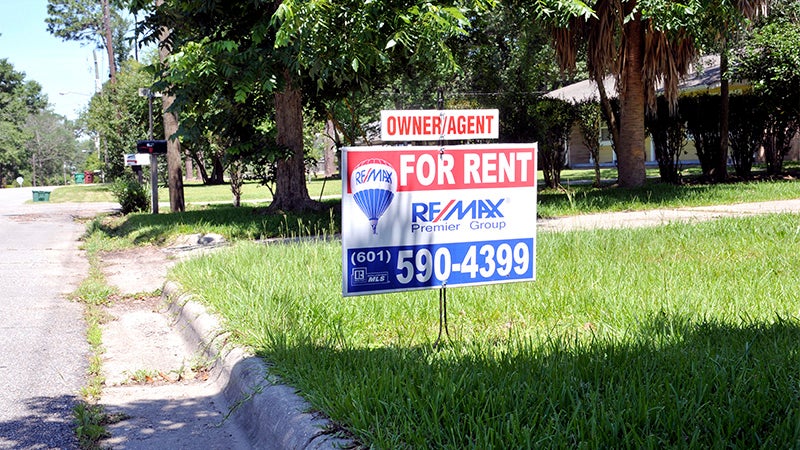Pearl River County rent is too high for low-income households
Published 7:00 am Saturday, June 10, 2017

- Rentals in Pearl River County are consistently more costly than the average price that a low-income household can afford. Photo by Julia Arenstam
Living comfortably in a Pearl River County rental is “out of reach” for many households according to a report from the National Low Income Housing Coalition.
According to the report, the average renter’s wage in Mississippi is $11.15/hour.
Those earning that wage can afford $580/month in rent if they work 44 hours per week for a one bedroom or 53 hours for a two bedroom rental, the report states.
Yet, Mississippi’s minimum wage is $7.15/hour, making the affordable rent for a person making that much $337/month, according to the report.
While fair market rent statewide is $635/month for one bedroom and $772/month for two bedrooms, Pearl River County’s rentals vary from $670 to $829 per month.
Local real estate agent Woody Spiers said the rental market in the area is very high; as soon as properties are available they are typically rented the next day.
“Rental rates are probably higher than they’ve ever been,” he said.
Twenty-four percent of Pearl River County households, or 4,896, are renters, below the state average of 32 percent, the report states.
Anyone in Mississippi living off Supplemental Security Income payments of $735/month can only afford $221 in rent, the report states.
The Area Median Income for the county is $51,900, or $1,298 for monthly affordable rent, according to the report. According to the report, AMI “is set according to family size and varies by region.”
Even though the real estate market has been steadily growing in Pearl River County, Spiers said it’s hard to find houses for sale under $100,000.
Those that do become available often need minor repairs or renovations that can be difficult for those on a tight budget, he said.
Some low-income housing is available to residents in Pearl River County through the Picayune Housing Authority.
The Pines on Kingway Drive has 92 units and the Mae Williams George Weems complex on Sixth Avenue has 184 units for low-income residents who qualify for certain subsidizes based on their income.
While Spiers said renters often move in and out of units, he was uncertain of the exact cause and whether they are buying homes or moving to a more affordable area.
“They’re going somewhere I suppose because [rentals] continue to come on the market,” he said.





